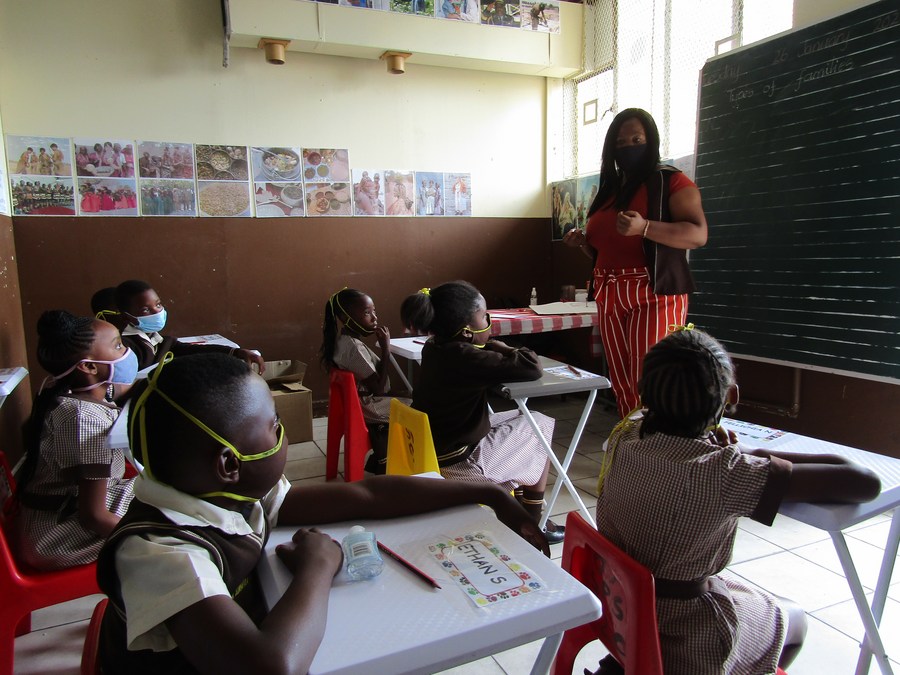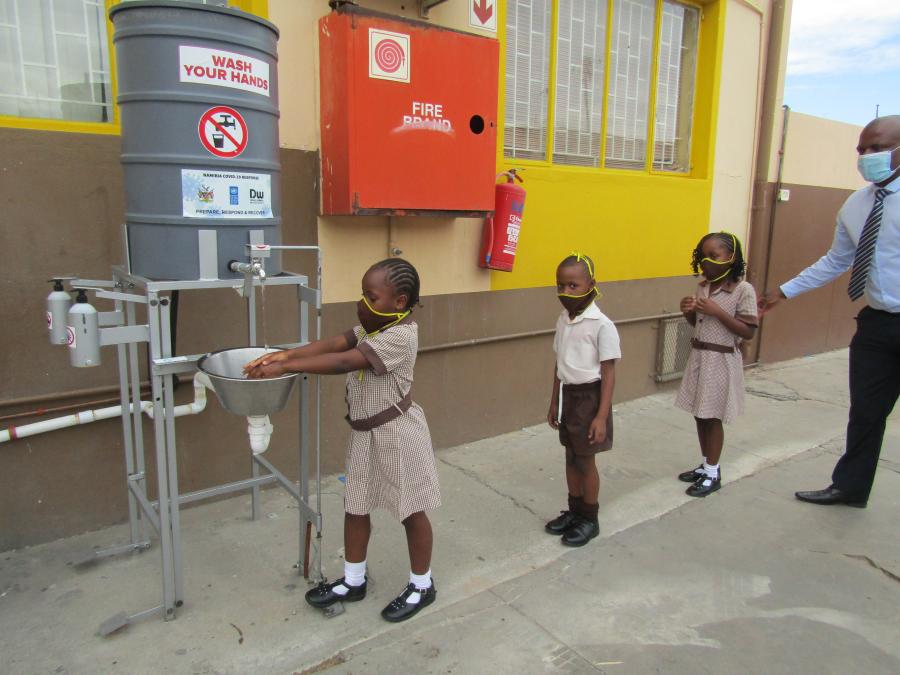
Students attend a class at a school in Windhoek, Namibia, on Jan. 26, 2021. (Xinhua/Musa C Kaseke)
Schools in Namibia have resumed face-to-face teaching and learning following a reduction in COVID-19 cases in the southern African nation.
by Ndalimpinga Iita
WINDHOEK, Aug. 5 (Xinhua) -- Schools in Namibia resumed face-to-face teaching and learning on Wednesday following a reduction in COVID-19 cases in the southern African nation.
Schools reopened for pre-primary to secondary phases on Aug. 4, instead of the initial date of July 26. Returning to school has been a bittersweet reunion for most learners and teachers.
Milka Davids, a learner from capital Windhoek, said that she is pleased to see her friends after a long time.
"Although I am happy to see my mates, I have mixed emotions regarding safety and interactions as it is not the same as in the past years. I could not even hug my classmates," said the grade seven learner on Wednesday.
Erons Louw, a grade nine learner in coastal town Walvis Bay, said he was overjoyed to return to school.
"Although teachers tried their best to keep us busy, learning from home is not the same. I look forward to gaining more knowledge and catching up on my school work," he said.
Louw added that he has newly found respect for his teachers and their hard work.
"My goal is also to support my schoolmates who lost their parents while schools were closed due to the pandemic," he added.
Teachers are also devising new ways of teaching.

Students line up to wash hands at a school in Windhoek, Namibia, on Jan. 26, 2021. (Xinhua/Musa C Kaseke)
Frieda Ndapewa, a teacher at Tulihongeni Combined School in the Ohangwena region, said teachers remain committed to educating.
"We have many gaps to fill in terms of curriculum and support for learners and colleagues to readjust and catch up on their learning," she said, adding that the teachers try to innovate new methods while ensuring safety and maintaining hygiene at school.
Meanwhile, Ayesha Wentworth, Director of Programmes and Quality Assurance in the Ministry of Education, Arts and Culture, said the COVID-19 pandemic had impacted the school environment.
According to Wentworth, the normal functioning usually observed in school settings is different now.
"Learners are missing out a lot on personal development such as peer-to-peer interaction, support from friends, team building, and they are not able to engage on that daily due to the pandemic," she said.
Teachers are also likely to play a dual role in both teaching and counselling learners.
"And with COVID-19, we are not able to process grief like we normally would, hence the need to give mental health priority as well," Wentworth said.
The government official said that schools have since implemented mechanisms to promote mental wellness on school grounds.
The ministry collaborated with other institutions that have availed social workers to provide psychosocial support to learners and teachers.
"The ministry is also busy strengthening the capacity of teachers to provide counselling to teachers at school level in all 14 regions," Wentworth added.
The ministry has since instructed school principals to consistently enforce safety measures such as social distancing, sanitization, and masks.
"We have re-doubled efforts to ensure safety of learners through measures and other innovative ways such as rotation and reduced number of learners in classes to minimize contact," said Augusta De Celestino, school principal of Mupini Combined School in the Kavango West region.
In the interim, learners are looking to the future with a positive mindset. "We are motivated to work hard despite all," said Louw. ■




